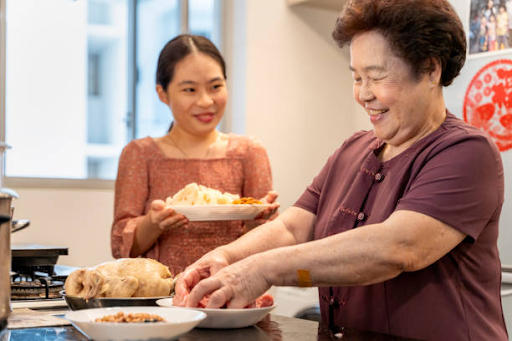In the bustling city-state of Singapore, where the pace of life is fast and demanding, many households turn to domestic helpers to ease the burden of daily chores and caregiving responsibilities. Hiring a domestic helper can be a transformative experience for families, but navigating the process can be overwhelming. This comprehensive guide aims to shed light on the intricacies of hiring domestic helpers in Singapore, offering insights into the recruitment process, legal obligations, and tips for ensuring a harmonious relationship with your helper.
Understanding the Basics
Before delving into the hiring process, it’s crucial to grasp the fundamentals. In Singapore, domestic helpers are commonly hired from countries like the Philippines, Indonesia, and Myanmar. The keyword “Domestic Helper Singapore” encompasses a broad search for individuals seeking domestic work in the country. It’s essential to be aware of the legal framework that governs hiring domestic helpers, which includes the Ministry of Manpower’s regulations and guidelines. Familiarizing yourself with these rules will help you make informed decisions and ensure a smooth and lawful hiring process.
Recruitment Agencies and the Role of Myanmar Maid Agency:
One of the most common avenues for hiring domestic helpers in Singapore is through recruitment agencies. These agencies act as intermediaries, connecting employers with potential helpers. When searching for the right candidate, consider agencies that specialize in sourcing domestic helpers from specific countries, such as a “Myanmar Maid Agency.” These agencies focus on recruiting helpers from Myanmar, providing employers with a pool of candidates from a particular cultural background. While engaging with such agencies, it’s essential to verify their credibility, reputation, and compliance with regulatory standards. A reputable Myanmar Maid Agency will guide you through the hiring process, ensuring that both the employer and the helper understand their rights and responsibilities.
Legal Requirements and Obligations:
Compliance with Singapore’s regulations is paramount when hiring a domestic helper. Employers must adhere to the Ministry of Manpower’s guidelines regarding salary, working hours, rest days, and living conditions. The issuance of a proper work permit is mandatory, and it’s the employer’s responsibility to ensure that the helper’s stay in Singapore is lawful. Failure to meet these obligations can result in fines or the revocation of the work permit. Additionally, employers must provide medical insurance coverage for their domestic helpers. Understanding and fulfilling these legal requirements is crucial for building a positive and lawful employer-helper relationship.
Cultural Sensitivity and Communication:
Cultural differences can be significant when hiring domestic helpers from various countries. Recognizing and respecting these differences is vital for fostering a harmonious working relationship. Effective communication is key, and employers should make an effort to understand their helper’s background, preferences, and needs. This includes being sensitive to cultural practices, religious observances, and dietary restrictions. Creating an open and supportive environment encourages a strong bond between the employer and the helper, leading to a more productive and enjoyable working relationship.
Training and Integration:
Once you’ve found the right domestic helper, investing time in training and integration is crucial for a successful partnership. Provide clear instructions on household tasks and expectations, and be patient as your helper familiarizes themselves with your routines and preferences. Encourage open communication to address any concerns or challenges that may arise. Integrating your helper into the family dynamic fosters a sense of belonging and contributes to a positive working environment.
Regular Check-ins and Feedback:
Maintaining a healthy employer-helper relationship requires ongoing communication. Schedule regular check-ins to discuss work performance, address concerns, and provide constructive feedback. Creating a feedback loop allows both parties to express their thoughts and feelings, ultimately leading to a more supportive and collaborative working relationship. Acknowledging your helper’s efforts and showing appreciation can go a long way in building trust and loyalty.
Conclusion:
Hiring a domestic helper in Singapore can be a transformative decision for busy households, providing valuable support and allowing families to balance their professional and personal lives. By understanding the legal requirements, leveraging reputable recruitment agencies like a Myanmar Maid Agency, and fostering open communication and cultural sensitivity, employers can create a positive and mutually beneficial relationship with their domestic helpers. Remember, a harmonious partnership is built on respect, communication, and a shared commitment to creating a comfortable and supportive home environment.

